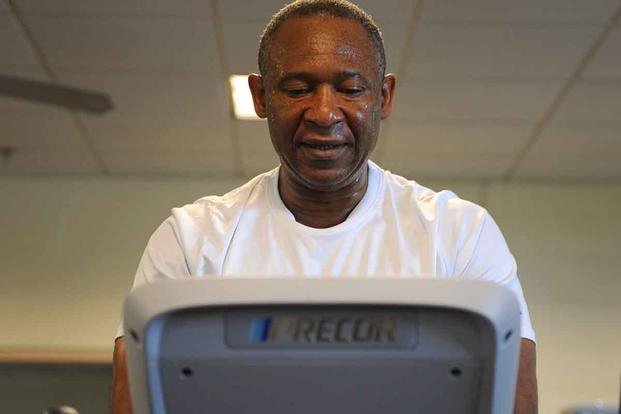As people transition into their 50s, 60s and beyond, the importance of health and wellness becomes increasingly evident. Many Americans are not future-oriented and tend to live in the present, so discussing longevity with people is like discussing retirement savings. This period of life allows you to begin the best practices that boost health and longevity.
While it is said that it is never too late to start your fitness journey, failing to start in your fifth decade could make doing many of the things we take for granted, such as walking stairs and standing up with perfect posture, more challenging. Transforming your health trajectory after age 50 begins with the crucial decision to stop ignoring your fitness at this crucial stage.
Adopting longevity-focused practices early at any age can yield enormous benefits, but ignoring fitness past age 50 is more than a missed opportunity: It can lead to increased health-care issues and costs while negatively affecting quality of life. Here are common questions posed by people concerning long-term fitness benefits:
1. How Does Regular Exercise Influence Bone Density and Muscle Strength as We Age?
Resistance training can help build stronger bones and muscles. Calisthenics, weightlifting, resistance bands and even yard work can improve or maintain muscle and bone strength. Engage in resistance exercises at least twice weekly, focusing on larger muscle groups in the legs and torso. This helps preserve muscle mass and bone density in our body’s load-bearing and posture functions, which naturally decline with age.
Studies have shown a strong correlation between thigh muscle mass and longevity, suggesting that solid thigh muscles are crucial for mobility and daily activities. These can decline with age, impacting overall health and quality of life.
2. What Is the Relationship Between Cardiovascular Health and Longevity for Those over 50?
Find an aerobic activity you enjoy, such as walking, swimming or cycling, and be consistent with it. This means daily activity. Minimum weekly amounts from medical studies require at least 150 minutes of moderate activity weekly, 20-30 minutes each day. This will help improve heart health while staving off Type 2 diabetes, stroke and some cancers. Delaying or preventing the biggest statistical killers Americans face is, by definition, “longevity.” Check out clever ways to add more cardio time to your day.
3. What Dietary Changes Should Older Adults Consider to Support Their Fitness Journeys?
Eat natural, nutrient-dense foods. Most of your meals should include fruits, vegetables, lean proteins and whole grains. Avoid ultra-processed foods and shop more in the produce and meat department. Also avoid overeating, as five pounds of added weight each year can add up to 50 pounds heavier by the end of the decade.
See the diet and nutrition section at Military.com Fitness.
4. How Significant Is Sleep in Recovery and Overall Wellness for Those Engaging in Fitness Routines?
Restorative sleep is essential; establish a consistent sleep schedule by setting alarms to start the pre-sleep rituals. Aim for 7-9 hours of quality sleep each night. Create a restful environment by limiting screen time before bed and maintaining a cool, dark room. Focus on deep breathing to calm yourself and reduce intrusive thoughts.
5. How Important Is It to Master the Way We Breathe During Exercises?
Incorporate breathing exercises into everything you do. When you lift, inhale deeply before the lift and exhale on exertion. When walking, practice deep inhales and exhales. When stretching, hold each stretch for 2-3 deep breath cycles. When nervous and anxious, try box breathing to calm down. These practices improve all fitness areas, reduce stress and enhance mental well-being. Breathing, stretching and walking all go hand in hand. Mix them by adding intentional breathing practices.
Lastly, consistently embracing fitness can shift your mindset from living only in the present to preparing for a vibrant future, like the benefits of growing a garden. Preparing for a future outcome gives us reasons to continue being strong. Even a brief period of physical activity can lift your spirits and energy levels for hours. This immediate gratification is a powerful motivator to stay committed to long-term fitness goals.
As you experience the positive effects, you will find it easier to establish a routine even when you do not feel like doing it in the moment. Knowing you will always feel better after physical activity is enough to get you started.
Now is the time for men and women over 50 to prioritize fitness and healthy lifestyle modifications. You can enhance your health and extend your vitality through better eating habits, structured exercise routines, improved sleep practices or stress management techniques. Rather than viewing fitness as a chore, recognize it as an investment in your future — a longer future filled with fun activities. Start today by building a consistent habit.
Want to Learn More About Military Life?
Whether you’re thinking of joining the military, looking for fitness and basic training tips, or keeping up with military life and benefits, Military.com has you covered. Subscribe to Military.com to have military news, updates and resources delivered directly to your inbox.
Story Continues
Read the full article here

